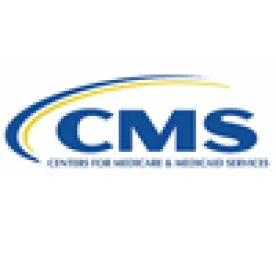The Centers for Medicare and Medicaid Services (CMS) released proposed rule changes to the current Medicare Shared Savings Program (MSSP) on December 1, 2014. The MSSP is designed to implement quality of care and cost-saving measures for Medicare beneficiaries throughout the health care delivery system. To date, national outcomes have been less than positive. In fact, CMS reports that only 25% of Accountable Care Organization (ACO) participants have generated the primary goal of cost savings. The proposed rule changes are intended to ease implementation pressures of the MSSP program. In an attempt to strengthen the program by encouraging participation, CMS has chosen to focus on the comments of hospital officials and providers by creating an environment of less risk.
The MSSP program includes more than 330 ACOs and more than 125,000 Medicare enrolled practitioners, covering roughly 4.9 million lives.
The proposed rule modifications
-
Allow both new and existing MSSP ACO participants an extra three-year implementation period at a lower sharing rate than previously proposed to encourage progression along the performance risk continuum. An October survey found that two-thirds of participants were somewhat or highly unlikely to continue to participate if they were assessed penalties. Currently, penalties are imposed for not meeting quality and cost-saving targets.
-
Establish, update and reset financial benchmarks by:
a. Using regional Fee-for-Service (FFS) expenditures instead of national FFS expenditures in establishing and updating benchmarks.
b. Transitioning to use of regional FFS cost data to make ACO’s success more cost- efficient relative to its local market.
c. Changing the calculations related to the benchmark that would support these alternative methodologies, which include: changing risk adjustment normalization and coding intensity adjustments, comparison group definitions, adjusting for ACO composition changes, the timeline for transition to regional FFS costs, as well as other adjustments.
-
Incorporate a participation renewal process. To date, many ACOs have entered into the program on the one-sided risk model by participating in the shared savings with the Medicare program, but forgoing the performance-based risk component. To facilitate more involvement in the “two-sided model,” CMS is proposing a longer lead time to encourage more experienced ACOs the opportunity for a higher share of savings.
-
Remodel the beneficiary assignment algorithm by:
a. Updating Current Procedural Terminology (CPT) codes to include primary care services.
b. Including claims for primary care services furnished by nurse practitioners, physician assistants and clinical nurse specialists.
c. Incorporating federally qualified health centers (FQHCs), rural health clinics (RHCs) and electing teaching amendment (ETA) hospitals.
-
Expand the kinds of beneficiary-identifiable data provided to ACOs in various reports under the Shared Savings Program as well as simplify the claims data sharing opt-out process to improve the timeliness of access to claims data.
-
Encourage greater ACO participation in risk-based models, to include:
a. Implementing a performance risk-based model for ACOs to participate in the Shared Saving Program and making minimum savings and loss rates variable rather than the current flat 2 percent.
b. Waiving certain FFS payment and regulations related to qualifying hospital stays for skilled nursing facility admission, tele health, qualifications for home health services, and post-acute referrals.
Eligibility requirement modifications
-
Agreements the ACOs have with Medicare enrolled entities.
-
Permit more flexibility with respect to the governing body and leadership participation.
-
Require ACOs to articulate how they will encourage and promote the use of enabling technologies for improving care coordination.
-
Create a streamlined process to allow prior Pioneer ACOs to apply for program participation.
All interested parties are encouraged to comment on the proposed rules until February 6, 2015 by visiting http://www.regulations.gov/.


 />i
/>i

